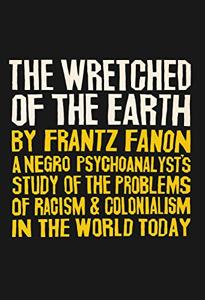
Want to learn the ideas in The Wretched Of The Earth better than ever? Read the world’s #1 book summary of The Wretched Of The Earth by Frantz Fanon here.
Read a brief 1-Page Summary or watch video summaries curated by our expert team. Note: this book guide is not affiliated with or endorsed by the publisher or author, and we always encourage you to purchase and read the full book.
Video Summaries of The Wretched Of The Earth
We’ve scoured the Internet for the very best videos on The Wretched Of The Earth, from high-quality videos summaries to interviews or commentary by Frantz Fanon.
1-Page Summary of The Wretched Of The Earth
Overall Summary
The Wretched of the Earth begins with Frantz Fanon’s explanation about violence in colonial situations. According to him, decolonization is never achieved without violence. The colonists took over the colonized by using military tanks and guns, and they continue to control them in the same way. There are two different worlds: one for the colonists that is modernized with conveniences, and one for the colonized that has poverty and illiteracy. Both sides are divided into light (the white people) and dark (black people). This creates an atmosphere of violence where both groups know that their liberation can only be achieved through violent means during a time when there was Cold War between socialism (the Soviet Union) or capitalism (the United States).
Fanon claims that the masses of a colonized country and its nationalist political parties are not on the same page. The nationalists represent less than one percent of the actual population, while the rest is composed of peasants who live in rural areas and have little interest in politics. Fanon also argues that there’s an urban proletariat made up of people living Western lifestyles who are mostly interested in preserving their privileges rather than fighting for liberation from colonialism. However, he says that this group is crucial to any revolution because they’re more likely to fight against colonial oppression. Finally, Fanon points out that many countries have won independence but they’ll still be oppressed if new forms aren’t addressed by those governments or revolutionaries.
In a newly independent nation, the national bourgeoisie takes political control of the government and places themselves in power. They are not very good at running an economy and keep all of the profits for themselves. The peasant masses who suffered under colonial rule continue to suffer under this system as well, leading to conflict between ethnic groups and class struggles. This leads to a single-party dictatorship with one leader driving policy in favor of the national bourgeoisie. In order to avoid this situation, Fanon says that government must be decentralized, moved away from urban areas, and run by peasants who have no stake in keeping power for themselves or their families.
After independence, formerly colonized intellectuals seek to recognize and validate their culture. They fight against the racist notion that they are devoid of intellect or culture. These intellectuals look back at past cultures before colonization took place in order to reclaim their heritage and create a new national identity for themselves. However, these “black” cultures have little in common with each other outside of the fact that they’re all defined by white people’s views on them; therefore, they cannot be combined into one large black cultural representation. Culture is not something you can isolate from pre-colonial times because it changes as a result of your nation’s development during its struggle for independence.
Colonialism and the violence that comes with it can lead to mental illness. Fanon, a practicing psychiatrist, includes several case studies of Algerians who suffered from various disorders as a result of colonialism. The disorders included anxiety, depression and anorexia among others. He also discusses how Europeans were affected by the situation in Algeria. Some experienced psychotic breaks while others had suicidal tendencies or became homicidal due to their experiences in Algeria during colonial times. Fanon believes that this was caused by excessive torture such as electrocution which led to brainwashing and other effects on people’s mental health at the time.





